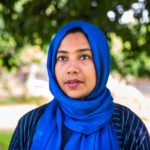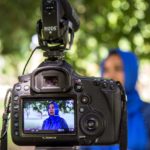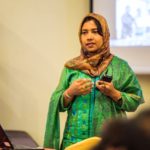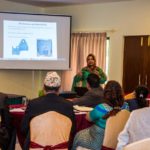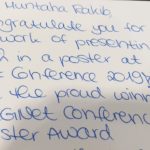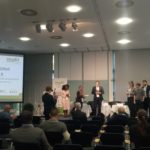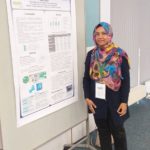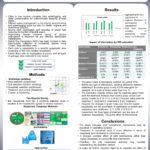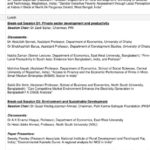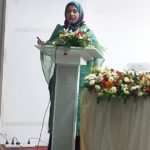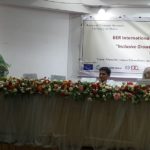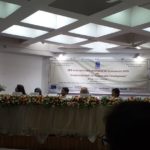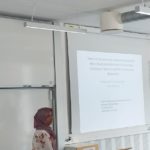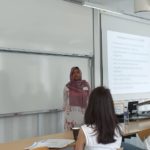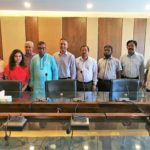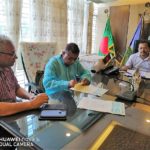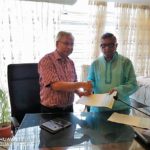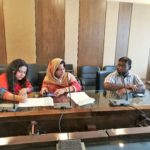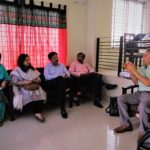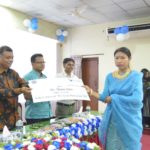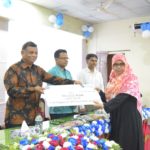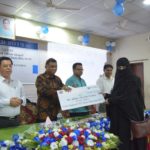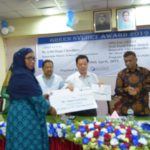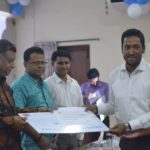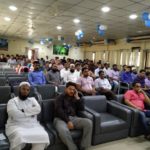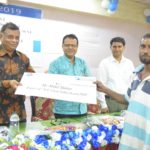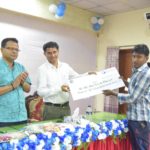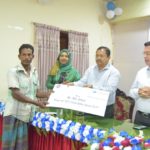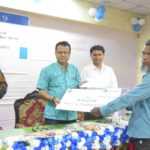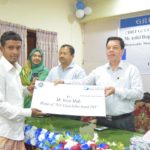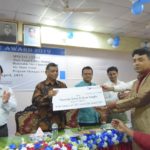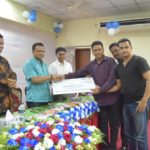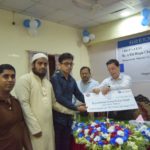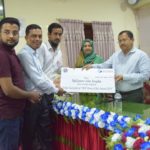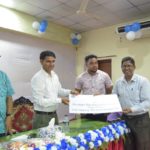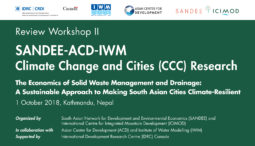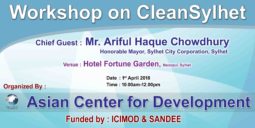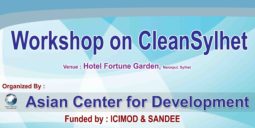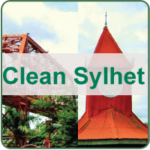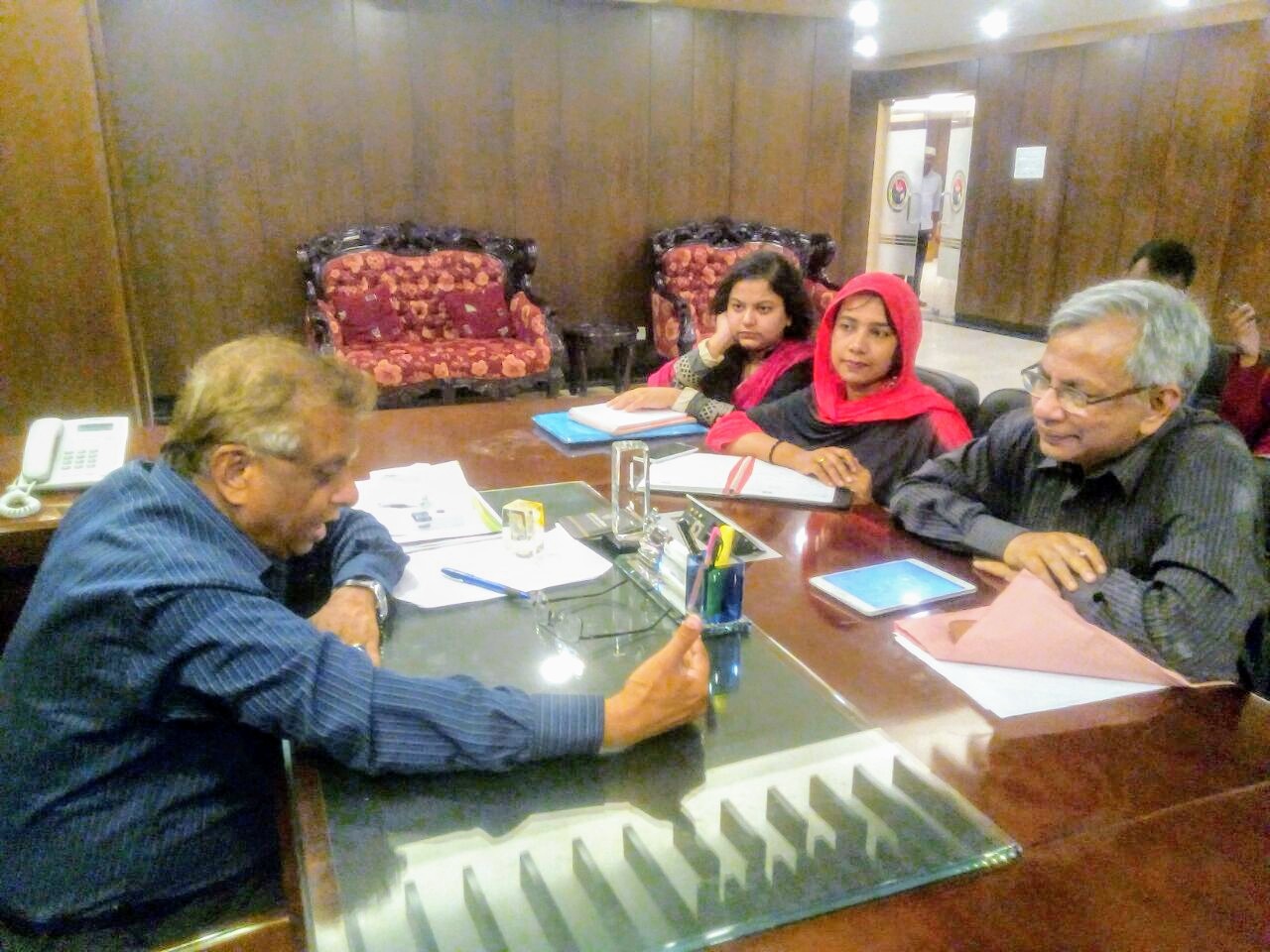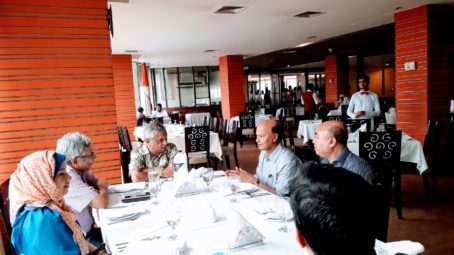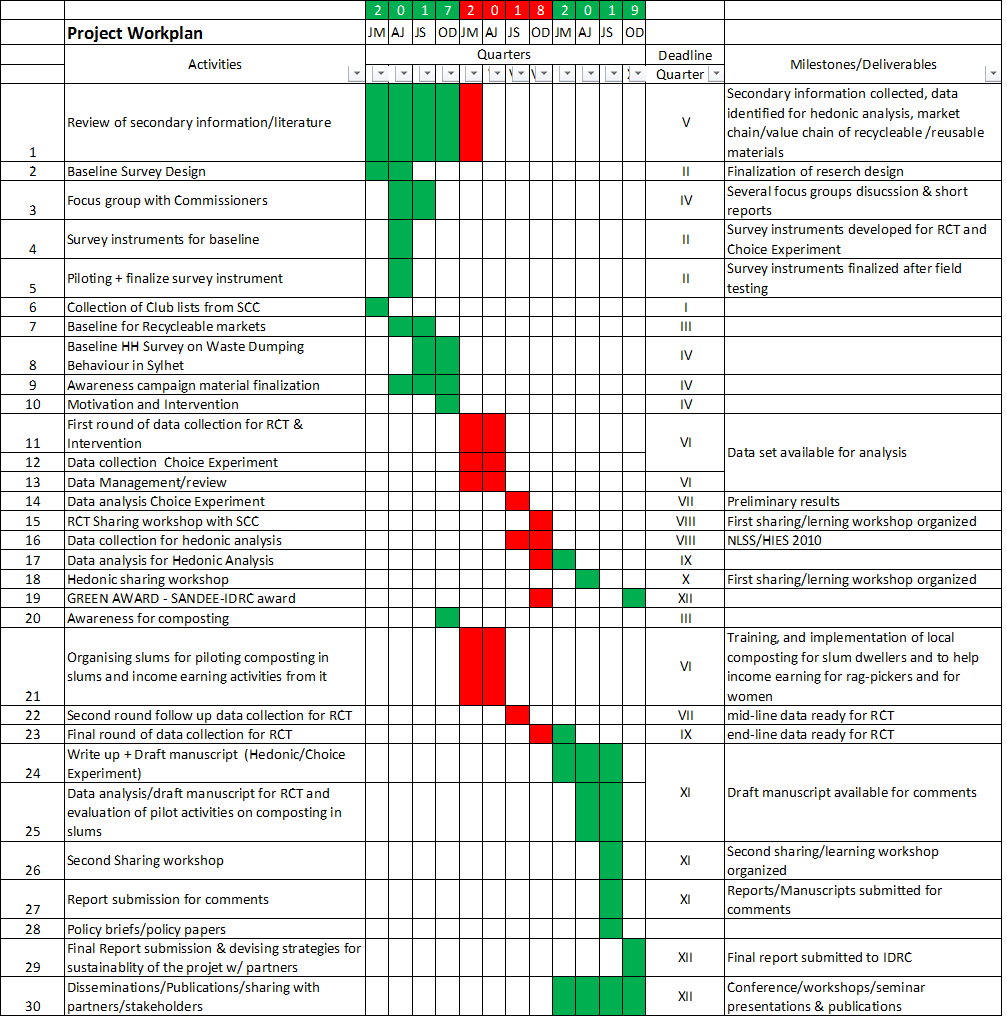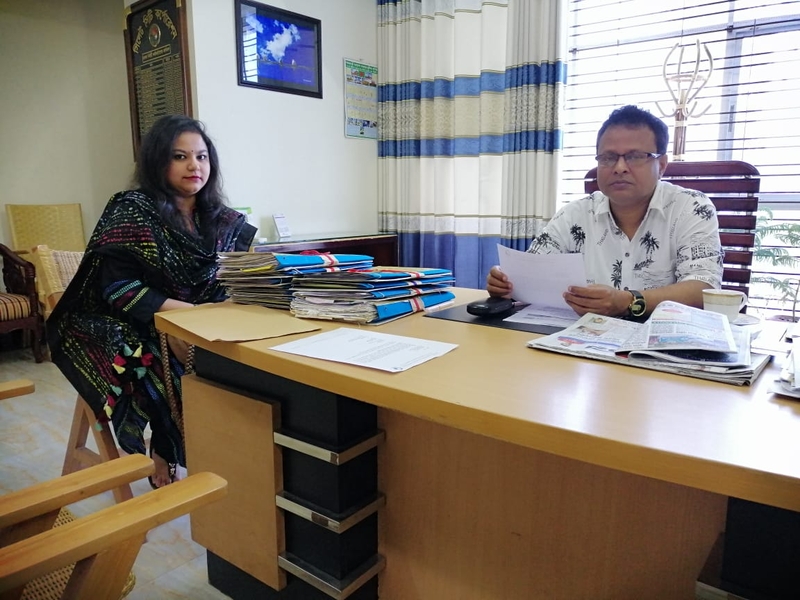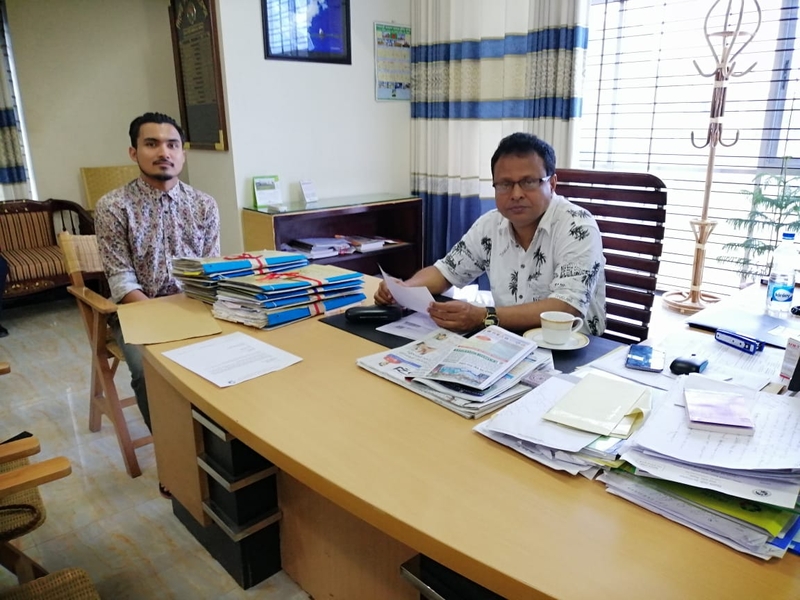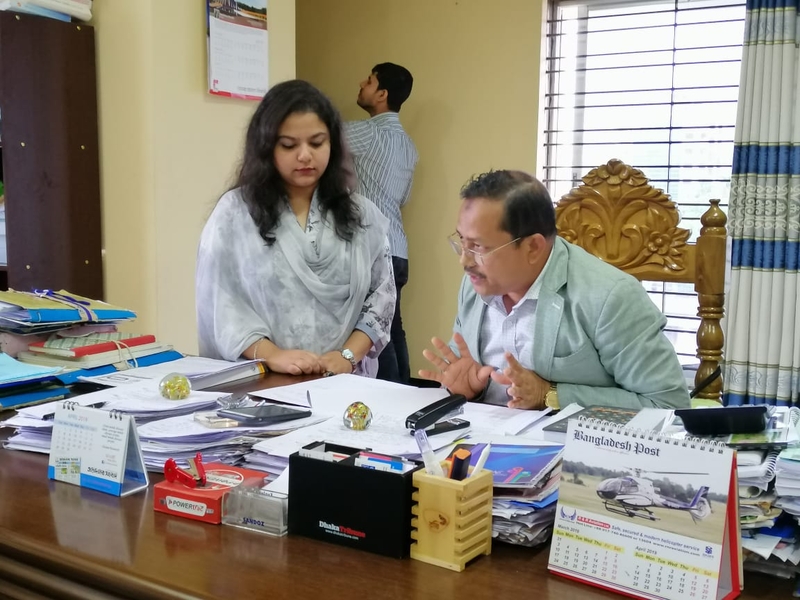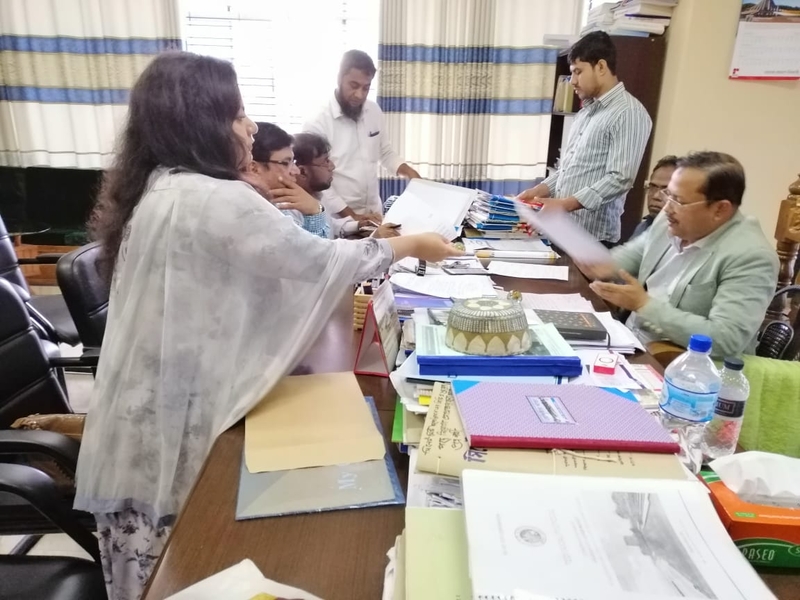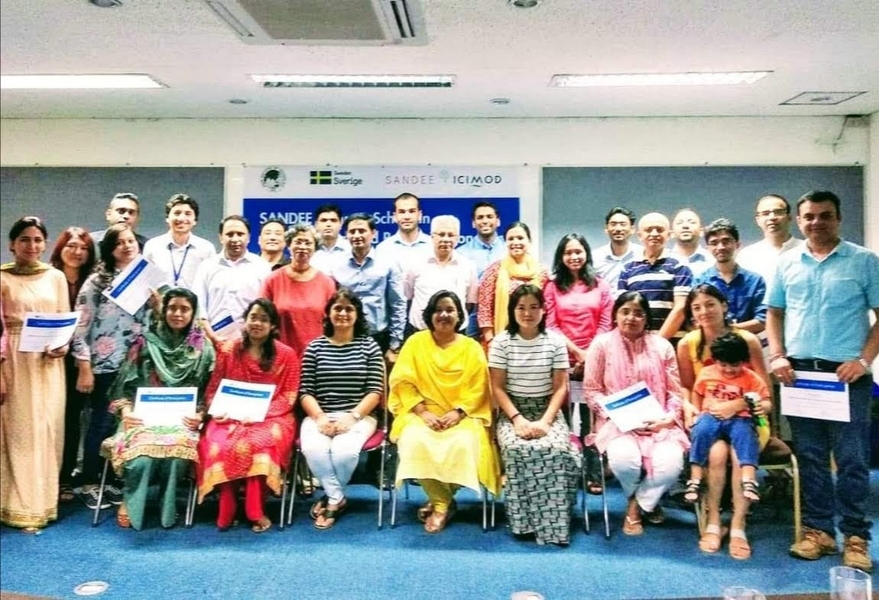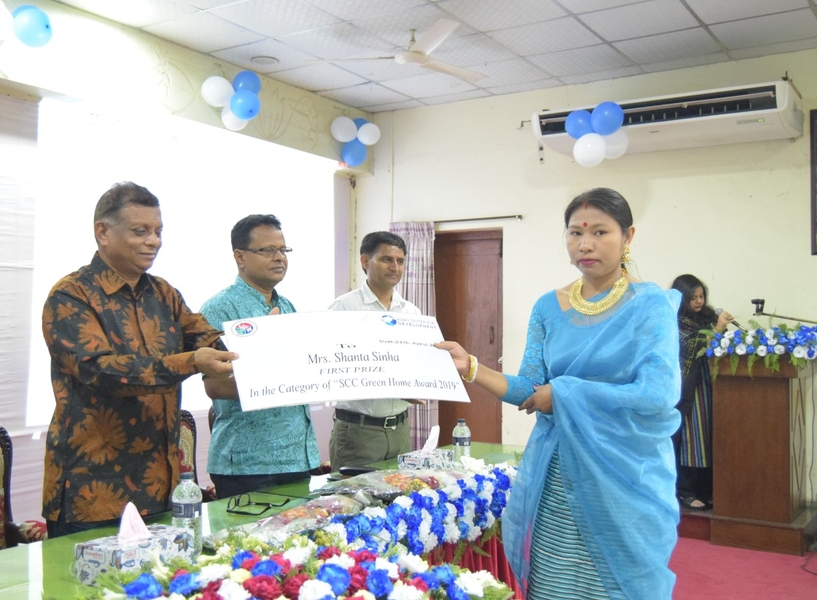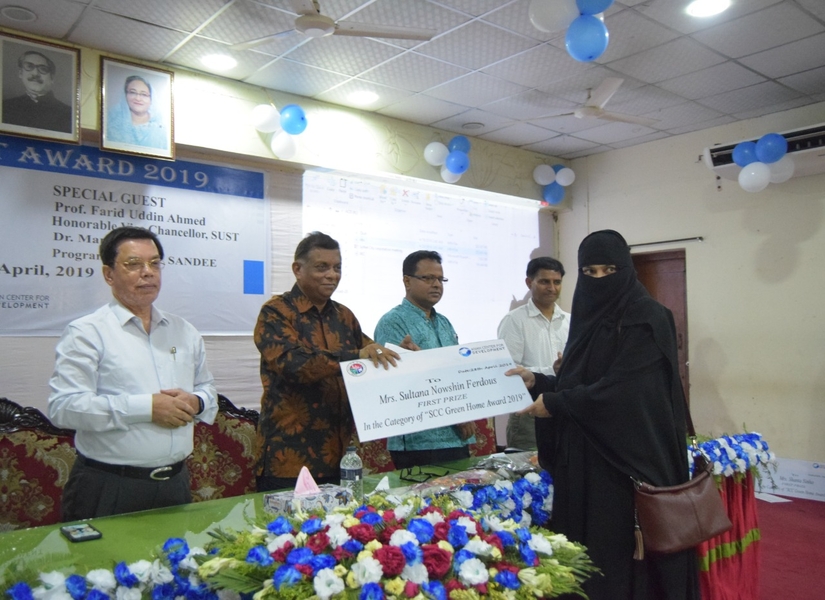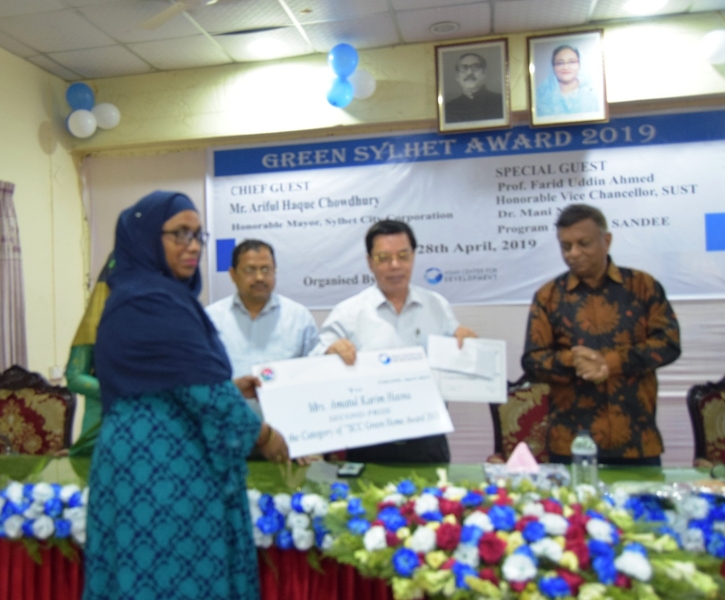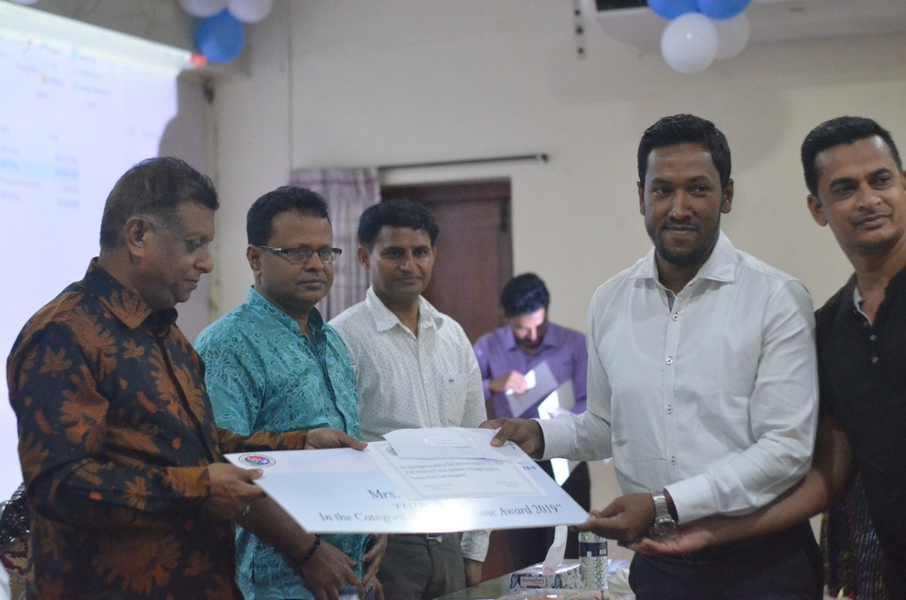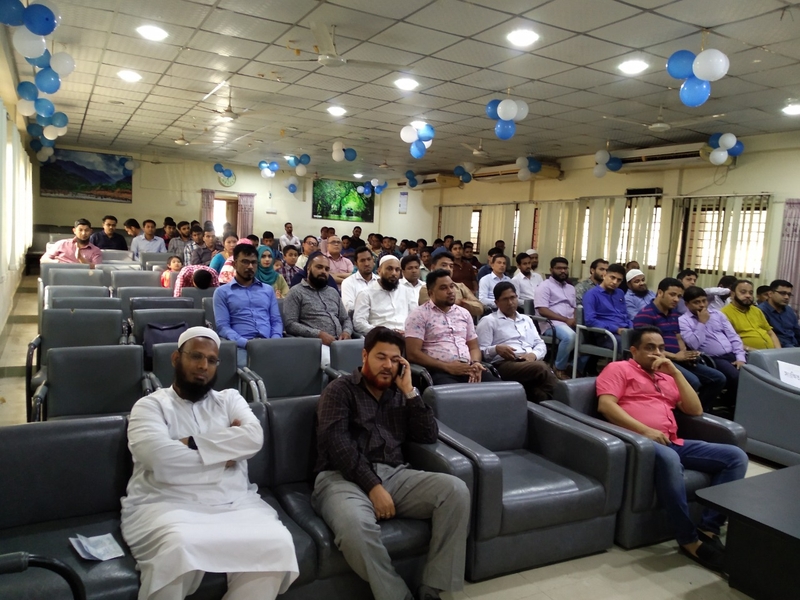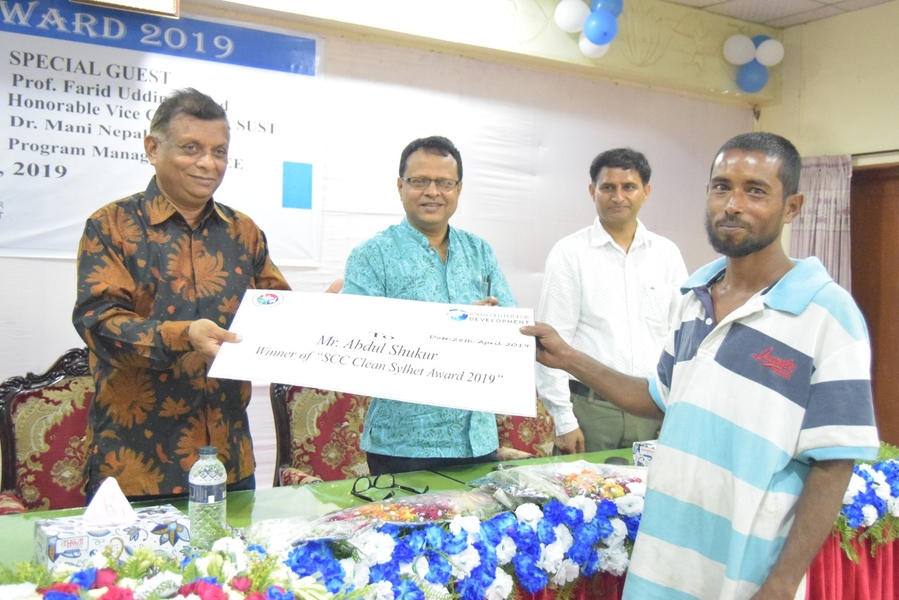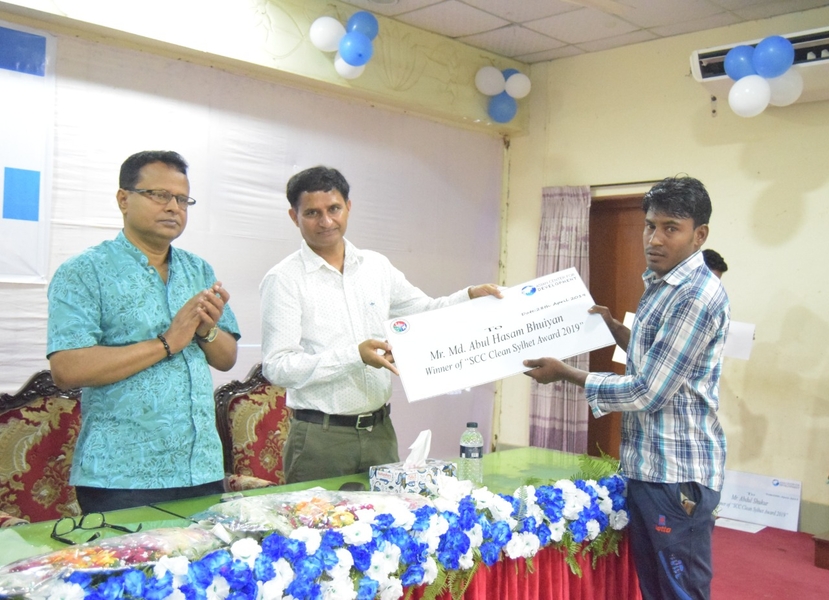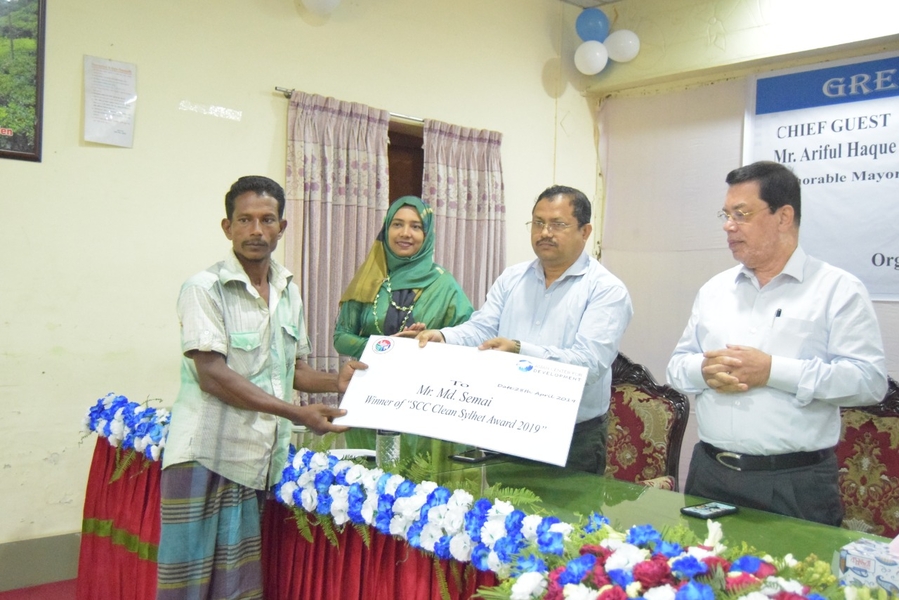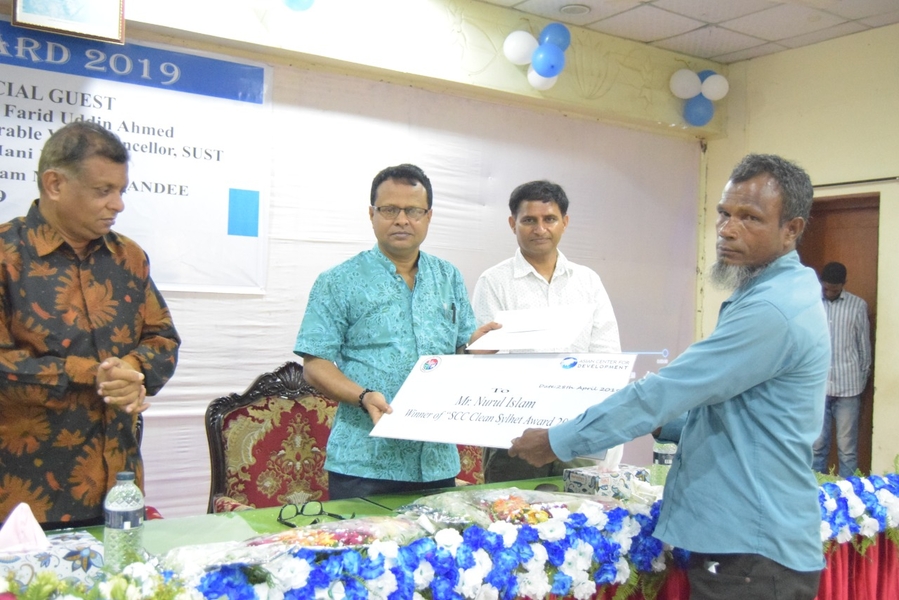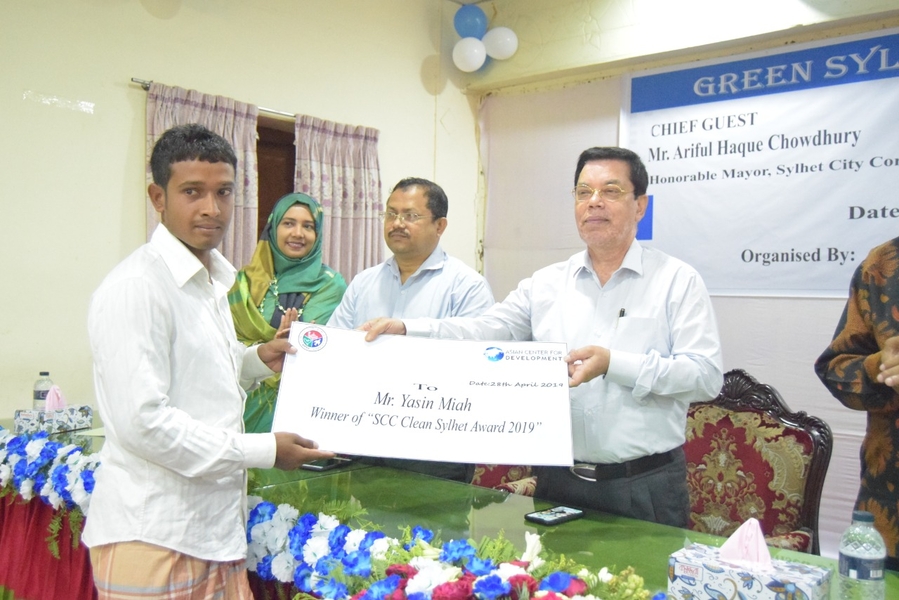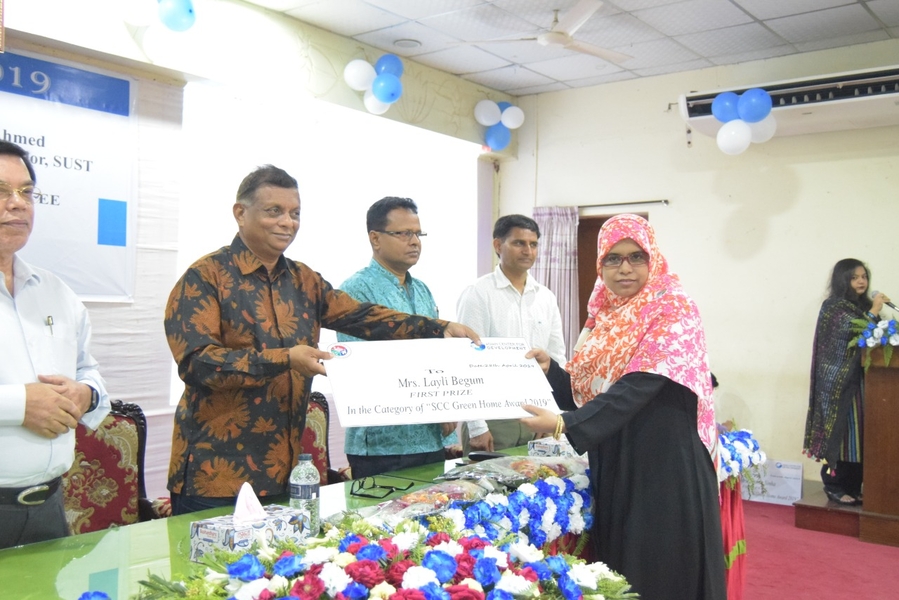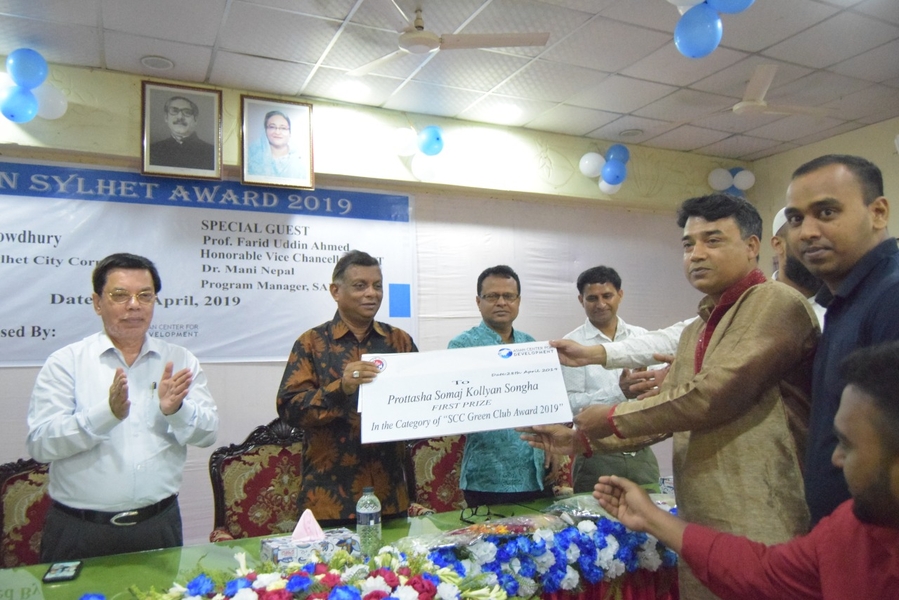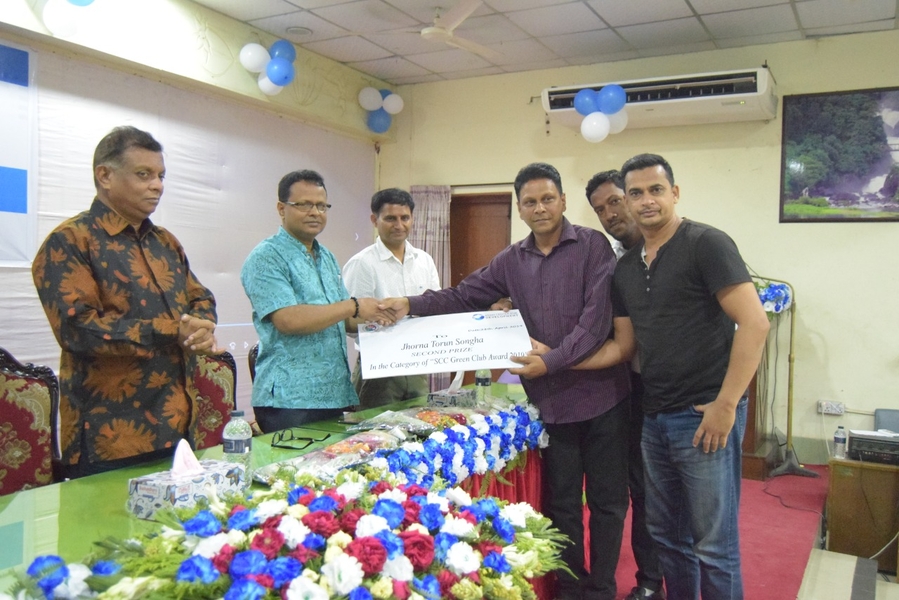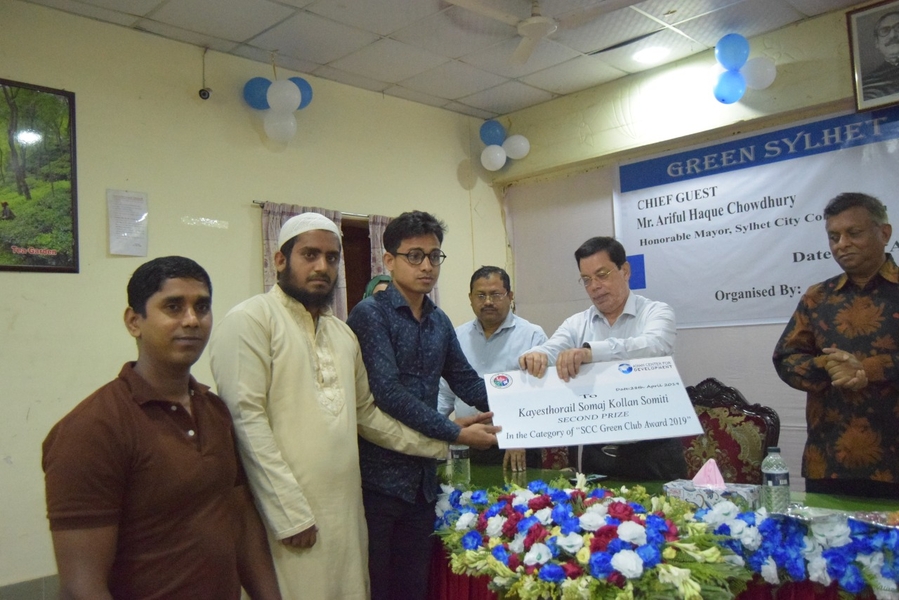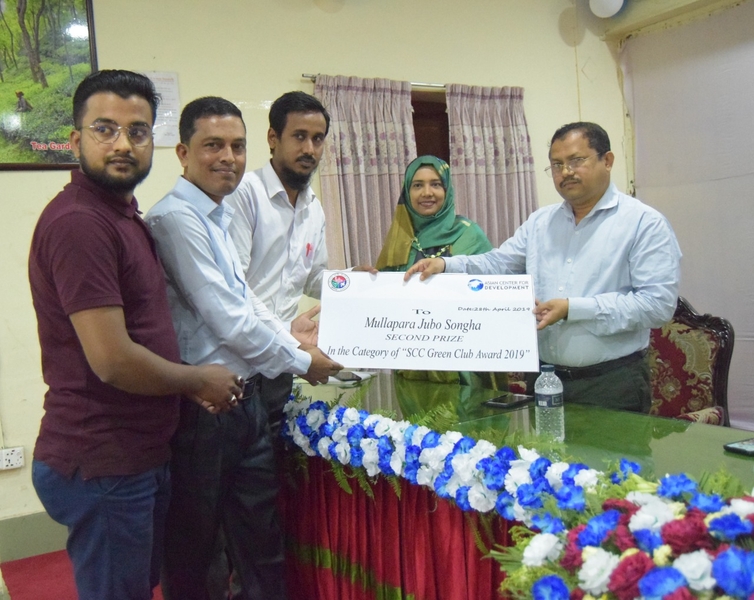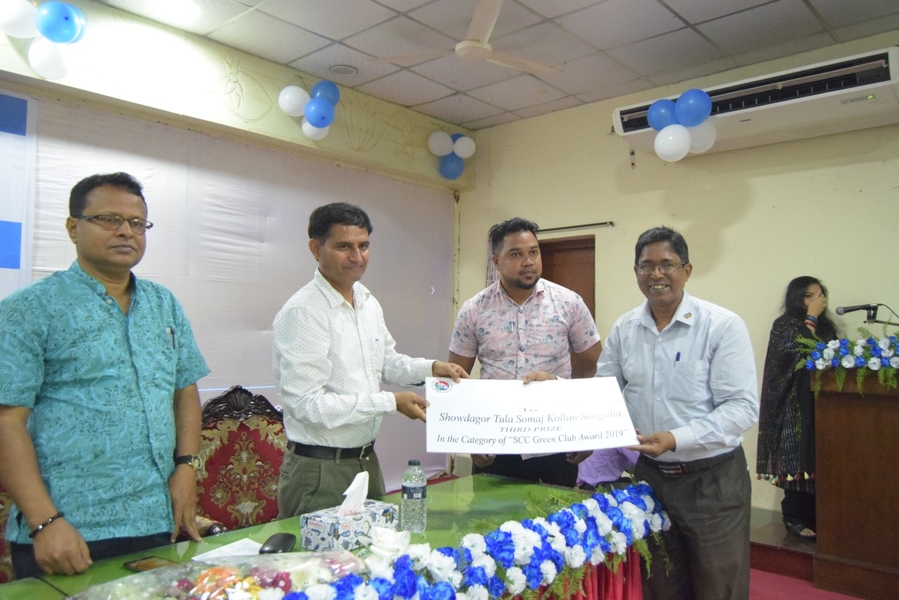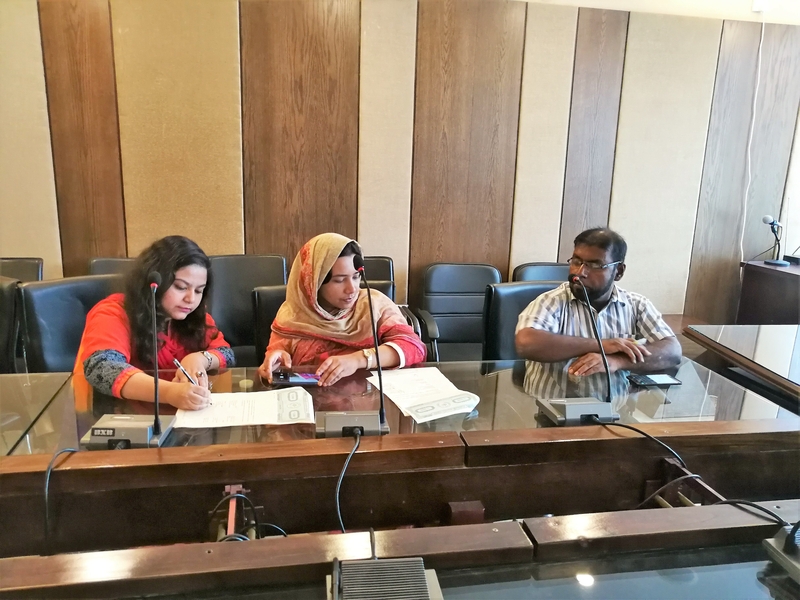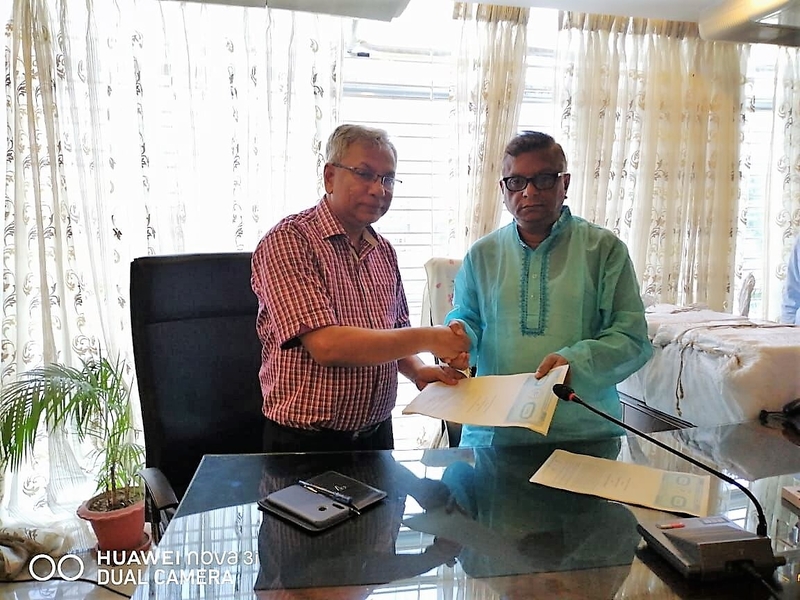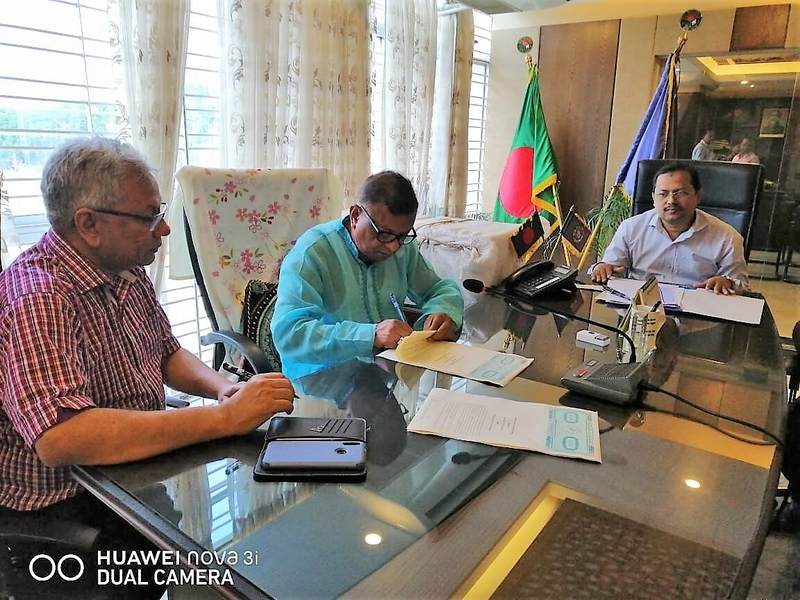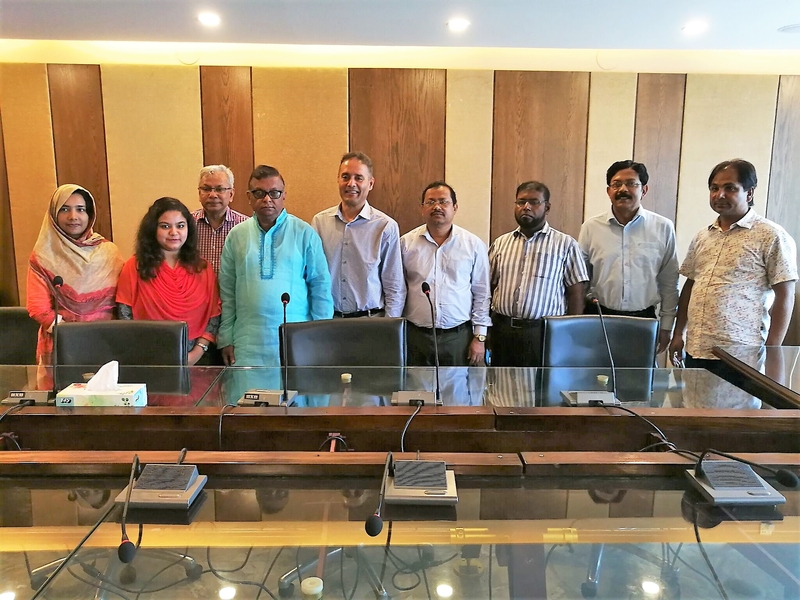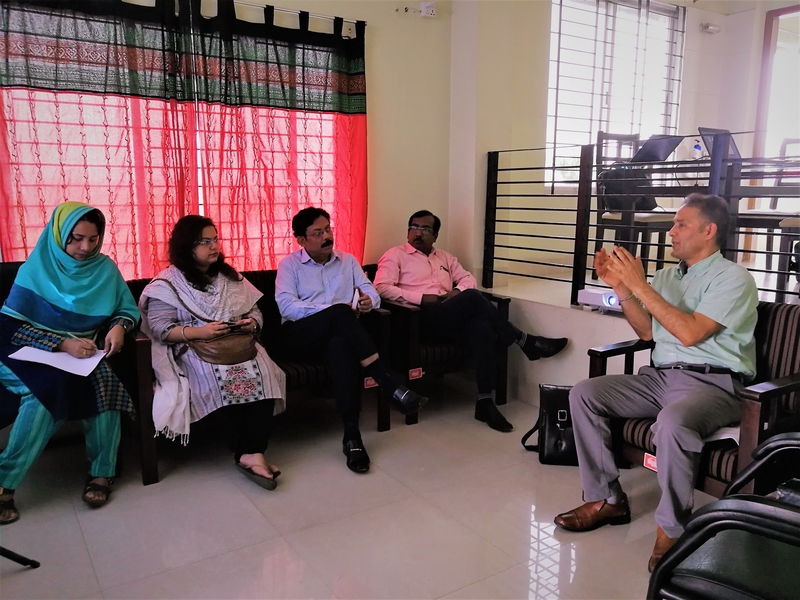Events
Dr. Muntaha Rakib attended the Dissemination workshop in Bharatpur, Nepal
October 19-20, 2019: Bharatpur, Nepal
Dr. Muntaha Rakib, the Senior Fellow of the Asian Center for Development and Associate Professor of Economics, SUST, attended the final dissemination workshop of the research on Climate Resilient Cities in Bharatpur, Nepal. She presented the findings of her research in the Sylhet City Corporation and the success in terms of promoting effective waste separation strategy in Sylhet using RCT. She was later interviewed by local media to explain the findings for the general public.
September 9-10, 2019: Bonn, Germany
PEGNet Conference 2019 on “Promoting Social, Economic and Sociopolitical Development through Social Protection”
Dr. Muntaha Rakib presented a poster on “Impact of interventions on inducing households’ waste segregation behaviour: A randomized controlled trial experiment in Sylhet City Corporation, Bangladesh”. The poster was selected for the “Best Poster Award” in the conference. Dr. Muntaha also presented the same in a seminar at the Center for Development Research (ZEF) in the University of Bonn on 11 September 2019. The Poster presented by Dr. Muntaha Rakib on the IDRC project was among one of the three best posters in the conference.
June 26, 2019: Dhaka, Bangladesh
Dr. Muntaha Presents a paper on Factors Influencing Source Segregation behavior of urban households
Dr. Muntaha Rakib presented her findings on the research conducted under this project at the BER- Conference in Dhaka University on 26 June 2019. She presented her paper at the Session on Sustainable Development and Environment. The session was presided over by Dr. Q. K. Ahmad, Chairman, Palli Karma Shohayak Foundation, Dhaka. The title of the paper was “Factors influencing urban households source segregation behavior of solid waste”.
June 18, 2019: Copenhagen, Denmark.
Dr. Muntaka Rakib presents her initial findings from the Project in Copenhagen
Dr. Muntaha Rakib presented her findings from the research project in her paper on “Impact of interventions on households’ waste segregation behaviour: a randomized controlled trial experiment in Sylhet City Corporation, Bangladesh” at the Nordic Conference on Development Economics in Copenhagen on 18 June 2019.
May 7, 2019
MOU between Sylhet City Corporation and ACD on Understanding Commercial Waste Management
The Mayor of Sylhet City Corporation Mr Ariful Haque Chowdhury and Dr. A.K. Enamul Haque signed an MOU between ACD and SCC to study strategies to manage restaurant, and vegetable market wastes and converting them into compost at the Parir Chowk, Lalmatia City Waste Dump Site of the Sylhet City Corporation. Dr. Bhim Adhikari (IDRC), Dr. Muntaha Rakib (ACD/SUST), Ms. Nabila Hye (ACD), Engr Nur Azizur Rahman (SCC), Engr Ali Akbar (SCC), Mr. Hanifur Rahman (SCC), S.M. Mahabubur Rahman (IWM), Mr. Humayun Karim (IWM), and Mr. Tanmay Chaki (IWM) witnessed the ceremony.
May 6-9, 2019
IDRC Visit to ACD, Sylhet Office
Dr. Bhim Adhikari, Senior Program Specialist of IDRC visited the project sites and met the Mayor of the Sylhet City Corporation during his visit to Sylhet. During the visit, Dr. Adhikari attended the Signing Ceremony between the Sylhet City Corporation and the Asian Center for Development on extending the research to understand how to deal with commercial wastes in the city.
April 28, 2019
SCC Green Award Ceremony
The Sylhet City Corporation in collaboration with the Asian Center for Development awarded 9 Awards in three categories to households, clubs and waste collectors for keeping the Sylhet City Clean. City Mayor Ariful Haque Chowdhury was the Chief Guest and the Vice Chancellor of Shahjalal University of Science and Technology Professor Farid Uddin Ahmed, Dr. Mani Nepal, Program Coordinator of SANDEE, ICIMOD, Nepal were special guests. The ceremony was presided over by the CEO of the City Corporation Mr. Bidhayok Roy Chowdhury. The following persons received the awards.
Household Category – GREEN HOME AWARD 2019: 1st Prize – Mrs. Sultana Nowshin Ferdous, Mrs. Laily Begum, and Mrs. Shanta Sinha; 2nd Prize – Mrs. Amatul Karim Hasna; and 3rd Prize – Mrs Abida Begum.
Club Category – GREEN CLUB AWARD 2019 : 1st Prize – Prottasha Somaj Kollyan Songstha; 2nd Prize – Mullapara Jubo Shongho; Jhorna Torun Shongho; and Kayestoryel Somaj Kollyan Somiti; and 3rd Prize – Soudagortula Somaj Kollyan Shongstha;
CLEAN SYLHET AWARD 2019: Md. Abul Hasam Bhuiyan, Md. Yasin Miah, Abdul Shukur, Nurul Islam, and Shemai Mia;
November 19-22, 2018: Sylhet
Data Analysis Meeting
The Research team on the ACD-SANDEE-IDRC project had three days meetings on data analysis. Dr. Muntaha Rakib, Ms. Nabila Hye, Syed Fakrul Islam, and Dr. A.K. Enamul Haque were at the meeting and worked on the analysis of data for developing research papers.
November 11, 2018: Sylhet
Data organizing meeting in Sylhet
The research team on the ACD-SANDEE-IDRC project had a day-long meeting on organizing the data from the surveys and discussed arranging data in STATA for analysis.
October 1, 2018: Kathmandu
Review Workshop II
SANDEE-ACD-IWM organized a One-day review of their research work since 2017 in order to determine the future course of their Policy Research. Participants from ICIMOD, IDRC, NDRI, Clean Up Nepal, SWMTSC attended the day-long program.
Dr Muntaha Rakib, and Dr. A.K. Enamul Haque presented the progress report of the climate smart cities research in Sylhet which is being conducted by the Asian Centre for Development.
September 25, 2018: Sylhet
ICIMOD Monitoring Team visited Sylhet
Ms. Lalu Kadel from the Monitoring Unit of ICIMOD visited the Sylhet City on 25 September and visited the experiment sites. Ms Kadel along with the ACD team of researchers also had meetings with various stakeholders including the Chief Engineer of Sylhet City Corporation, the Secretary of the Corporation, Ward Councillor in Ward 11 and Club members in Ward 18 and Ward 22.
April 18-July 6, 2018 Experiment Begins: Sylhet
Treatment on Segregation and Composting
Household Level at Source Segregation Treatments
Asian Center for Development as a part of its research activities designed several experiments in order to understand when and how at source segregation of kitchen wastes is possible. It had several steps.
Selection of Ward
Step 1: 150 households in three treatment wards were monitored for a week in terms of their waste disposal habit. It was found that nearly 92.5% of the wastes given to the Garbage Collector is organic in nature and so are compostable.
Design of the Experiments
Step 2: Household-based composting seemed to be infeasible due to the density of households in the city and so ACD decided to install community-based composting with segregation at source.
Therefore, three treatments were designed for the research.
Treatment 1: One of the clubs (randomly chosen) was given a community-compost bin
Treatment 2: One of the clubs (randomly chosen) was given poly-bags at the household level.
Treatment 3: The remaining club was given both compost bin and poly-bags to do at source separation of kitchen waste in the 100 households.
Selection of the Clubs for the Experiments
Step 3: Three Wards (out of 27 Wards) in Sylhet city were selected with the help of the Hon’ble Mayor and the CEO of the SCC who are collaborators in this research.
Step 4: Each of the Wards in Sylhet City Corporation is divided into several community clubs consisting of 100-150 households. Clubs are managed by the small communities in the neighborhood and are primarily responsible for ensuring door-to-door collection of garbages, maintenance of social coherence and engage households in the community to stay together. As the city has been growing organically (without a centralized plan), house numbers of the area did not follow any order and so clubs provided a numbering system for each of the households with a map at each lane (the optional activity of the club). ACD team randomly selected one club for the experiment. Consequently, in Ward 11 – কলকাকলি সমাজ কল্যাণ সংস্থা (Kolokakoli Somaj Kollyan Sangstha club), in Ward 18 – ঝরনা তরুন সংঘ (Jhorna Tarun Sangha), and in Ward 22 – এফ ব্লক উন্নয়ণ সংস্থা (F Block Unnoyon Sangstha) were chosen randomly for the experiments.
Initial Awareness dose
Workshops, posters/stickers/videos/door-to-door persuasion (information)
Step 5: Club Members along with the Ward Councillor and 100 households in the Club were given a dose of awareness using a) workshop for club officials, b) awareness poster/stickers for club officials to post for display in the community, c) door-to-door campaign to all 300 households in the club were conducted and posters/stickers were distributed to them.
Regular monitoring of household behavior in terms of segregation of kitchen waste (persuasion)
To incentivize the households, every household were told that volunteers from ACD will regularly monitor their garbage in order to record their segregation behavior.
Responsible Citizen Criteria (environmental conscious citizen recognition)
In order to pursue the households in terms of being a responsible global citizen, ACD provided a separately keep hazardous wastes like a battery, bulbs, electrical and electronic wastes, medical wastes, etc. in a black poly-bag provided by the Research Team.
Financial Information to use recycling market (monetary incentives)
Every household was given a poster/sticker containing information (from the Baseline survey) that households in the city sell a) papers, b) bottles, c) plastic container, and d) metals and earn extra income instead of throwing them into the garbage.
2nd Dose of Awareness Campaign (27 July-8 August)
Step 6: In the first month of the experiment, it became clear that the process of composting from kitchen wastes would take more than month (during the rainy season) and so the second dose of awareness campaign was given to every household using a video clip from other countries to sway them to actively participate and separate their kitchen wastes from other garbages. Such separation brings health benefits to the community too.
Mayoral Award for the best three households (social recognition)
Step 7: Every participating household was told that a social recognition is waiting for them based for the best three households who segregates and the judging criteria are a) changes in their behavior (towards segregation), b) active engagement to make the community clean using App provided by ACD (crowd-sourcing to identify dirty spots (where garbage has been dumped) in their community, and c) making others in the community (social network friends) aware using their social networking pages like Facebook, and d) making their own house green (using flower plants/trees in their compound).
Control Ward
Step 8: To estimate the impact of the treatment, one Ward was selected randomly by the research team who remained out of the research interventions. Ward 1 was chosen as the control Ward. As such no clubs in Ward 1 was invited in any of the meetings or given awareness materials.
Community-Level Treatment
Sylhet City Corporation had 27 Wards of which 3 were separated for the segregation treatment. In order to ensure that Mayor was not indifferent to others, 23 clubs were given a separate dose of community-level treatment using a) Every Ward Councillor (along with their club officials) were invited to the awareness workshop organized by the research team; b) ACD team provided relevant campaign materials to them for distribution/posting at the community level; c) informed that best three clubs involved actively to make a ‘Clean Sylhet’ city will be eligible for Mayoral Award and social recognition; and d) direct their waste collectors to properly clean the neighborhood;
Waste Collector Level Treatment
All the Wards (except the control Ward) were made aware that clubs can receive a social recognition if they can make their neighborhood clean and green.
As such, in
Step 1: volunteers were appointed by ACD to post photos using “Clean Sylhet App” identifying unplanned disposal of garbage on city streets.
Step 2: the pictures were also posted in the Whatsapp group to intimidate the club officials to make their neighborhood clean; Garbage collector in the area is expected to be mobilized by the club to do the cleanup operation.
Based on the feedback, the two best waste-collectors will be given an incentive and reward by the Mayor.
April 1-2, 2018
Clean Sylhet Campaign for a Climate Resilient Sylhet City
The Mayor of Sylhet City Corporation Mr. Ariful Haque Chowdhury inaugurate the awareness campaign in Sylhet today. The campaign – nick named – Clean Sylhet – is designed as a part of the research experiment to understand how to change human behavior in order to reduce throw-away street garbage which is responsible for clogging the city drainage system and causes water logging in many parts of the city. This objective of the research is to understand the impact of changes in civic behavior to reduce water-logging in the city and to make the city climate resilient. Chief Engineer of the City Corporation Mr. Noor Azizur Rahman, Ward Councillors from Ward #1 Mr. Syed Towfikul Hadi, Ward#17 Mr. Delwar Hossain Sajib spoke on the occasion and encouraged people’s participation to make the city Green.
During the inauguration, Hon’ble Mayor said, “To transform Sylhet City into a clean and green city, we need the combined participation of govt. and local citizen. It is mendatory to raise mass awareness in household, school and religious organization against solid waste and garbage.” Chief Engineer of SCC Mr. Nur Azizur Rahman said, “We are enlarging drains to maintain the good flow of water. But it is tough for SCC to manage the garbage system alone. It is a praiseworthy initiative by Asian Center for Development to raise awareness among household and club level.”
In the second day of the workshop, Executive Engineer of SCC Mr. Ali Akbar said, “We welcome such initiative taken by ACD and hope that their such initiative will play a vital role among general people and put imphasize on garbage management system.” Research Assistant Miss. Nabila Nuzhat Hye presented Analysis of perception and behaviour on Solid Waste Management of SCC. Nabila explained the summary of baseline survey held in 4 Wards of SCC about solid waste management, segregation and composting. Research Assistant Sayed Fokhrul Islam introduced an essential app and Facebook page named ‘CleanSylhet’. He presented the usage and application rules of this app.
Dr. Muntaha Rakib (Senior Asian Fellow of ACD) introduced the campaign to all ‘club’ members (in each of the Wards) to encourage them to participate in making the city clean. They also introduced the CleanSylhet mobile app to report street garbages from the city.
Newspaper clippings
March 18, 2018
Meeting with the Mayor of Sylhet on CleanSylhet Campaign
The ACD Team led by Dr. A.K. Enamul Haque and Dr. Muntaha Rakib met with the Mayor Mr Ariful Haque Chowdhury and apprised him of the experiment that the Asian Center for Development in collaboration with SANDEE has now built the composter for the experiment and would like to install them in Wards 11 and Ward 18. They sought help from the Mayor to find a suitable place for placing these composters. The team also requested time for starting of the campaign on CleanSylhet Program from April 1, 2018 with training and awareness programs. Mayor has agreed to inaugurate the program. Nabila Nuzhat Hye and Syed Azdaan (ACD Scholar) also attended the meeting.
August 13, 2017: Sylhet
ACD Research Team had Meeting with Mayor of Sylhet
Professor Saleh Uddin, Prof Enamul Haque, Dr Muntaha Rakib and the research team members of the IDRC project had a meeting with the Mayor of Sylhet City Corporation Mr. Ariful Haque Chowdhury, CEO of the City Corporation and discussed strategies of implementing research activities in the city, They have agreed to develop awareness module to on waste segregation at source and have also agreed to conduct the research experiment in wards 1, 16, 18 and 22. They have agreed to conduct baseline in these wards and also develop awareness campaign on waste segregation at home to introduce community base composting of kitchen wastes.
The CEO of Sylhet City Corporation Mr. Enamul Habib was present at the meeting. From the Asian center Professor Saleh Uddin, Dr Muntaha Rakib, and Nabila Nazhat Hye were present. They also discussed developing a mobile app using google map to promote the concept of sustainable cities.
The Mayor has agreed to introduce “Mayor’s Green Award” to best 2-3 clubs in the for making the community environment friendly and to 2-3 houses in the clubs which will be part of the research experiment.
Left to right: Dr Muntaha Rakib, Dr. A.K. Enamul Haque, Mayor Ariful Haque Chowdhury Prof Saleh Uddin, and Mr Enamul Habib
July 4-5, 2017: ICIMOD, Nepal
Kathmandu Review Workshop
ICIMOD Deputy Director General, Dr. Eklabya Sharma, gave the opening remarks and informed the participants that SANDEE has been integrated with ICIMOD, which has been hosted by ICIMOD since August 2009. He also informed the participants that SANDEE activities will continue as before after the integration. The integration means SANDEE will be governed by ICIMOD and there will be no separate governing body of SANDEE, but the focus and activities will remain as before.
After a series of remarks from the CEO of Bharatpur Metro, Ministry of Federal Affairs and Local Development, Solid Waste Management Technical Support Center and IDRC representative, seven technical presentations were made in Day 1, reflecting the project activities, progress made so far and future plan. In Day 2, SIAS team and SANDEE learned from each other on project activities, progress made so far and planned activities.
The meeting was useful in establishing, and re-emphasizing the importance of, partnership between researchers and stakeholders, and clarifying different research components, and progress made so far. Participants provided useful feedback in different issues, including how to make the research relevant and useful to the respective cities and other stakeholders.
Participating organizations
Asian Center for Development (ACD)
Bharatpur Metro
Clean Up Nepal (CUN)
International Center for Integrated Mountain Development (ICIMOD)
International Development Research Center (IDRC)
Institute for Water Modeling (IWM)
Ministry of Federal Affairs and Local Development (MoFA&LD)
NDRI Consulting (Engineers/GIS Modelers)
Solid Waste Management Technical Support Center (SWMTSC)
South Asia Institute of Advanced Studies (SIAS)
South Asian Network for Development and Environmental Economics (SANDEE)
Progress Presentation – ACD
March 24, 2017, Sylhet Bangladesh
Project team had a meeting on progress made so far and worked on questionnaire design for baseline survey, experiment design plan for RCT and other issues.
March 15, 2017, Sylhet Bangladesh
Project Planning Meeting at ACD, Sylhet
A whole day project planning meeting was held in Sylhet with the ACD Team to develop a working plan for the IDRC Project.
The detailed plan for the project for Sylhet City are shown below:
March 2-3, 2017, Bharatpur, Nepal
Launching Workshop in Nepal
Launching workshop and field trip in Bharatpur, Nepal from March 2-3, 2017
Inception Workshop to initiate a research work on “The Economics of Solid Waste Management and Drainage: Sustainable Approach to Making South Asian Cities Climate-Resilient”
March 2 – March 3, 2017
Workshop Program
| Date/time | Activities | Speakers |
| Day 0: March 1 | ||
| 16:45 pm | Bangladesh Team Arrives KTM | |
| Day 1: March 2 | ||
| 10:30 AM | Travel to Bharatpur (arrive Kathmandu airport before 1 hour) | |
| 12:00 – 13:00 | Lunch | |
| 13:00 – 18:00 | Consultation Meeting | |
| 13:00 – 13:15 | Introduction | Team |
| 13:15 – 13:45 | Background of the research project and proposed activities (Nepal) | E. Somanathan, Mani Nepal, SANDEE |
| 13:45 – 14:15 | Background of the research project and proposed activities (Bangladesh The Economics of Solid Waste Management and Drainage picture prestn) | AK Enamul Haque, ACD |
| 14:15 – 14:40 | Status of city drainage and solid waste managemnt in Sylhet City | Md. Ali Akbar, Executive Engineer, Sylhet City Corporation |
| 14:40-14:55 | Status of city drainage and solid waste management in Bharatpur | Chief Executive Officer, Bharatpur |
| 14:55 – 15:10: | Status of City drainage and solid waste management in Kawasoti | Chief Executive Officer, Kawasoti |
| 15:10 – 15:20 | Support to cities from Solid Waste Management Technical Support Center | SWMTSC |
| 15:20 – 15:30 | Existing policies on SWM in Nepal | MoFA& LD |
| 15:35 – 16:00 | Tea/coffee break | |
| 16:00 – 17:00 | Drainage Network Modeling: Data needs & Proposed survey activities | Ms. Ismat Are Pervin and Md Humayun Karim, IWM |
| 17:00 – 18:00 | General Discussions | All |
| 18:30 onwards | Dinner | |
| Day 3: March 3 | ||
| 9:00 – 1:00 | Site visits for understanding drainage and SWM issues | |
| 1:00 – 2:00 | Lunch | |
| 2:30 – 4:00 | Discussion on drainage network survey | IWM |
| 4:00 – 4:30 | Tea-break | |
| 4:30 – 6:00 | Planning meeting | Research Team (SANDEE, ACD, IWM) & invited members |
| Day 4: March 4 | Return to KTM/Dhaka |
Bharatpur, Nepal
Most fast-growing cities in South Asia face increased waterlogging and water contamination from improperly managed solid waste. Extreme weather events, including floods and droughts, are expected to further aggravate the operation of water supply, drainage, and sewerage infrastructure. Protecting cities requires reducing waste and improving waste collection, investment in drainage, replacing riverside and wetland dumping with engineered landfills, and identifying sustainable mechanisms to finance waste management.
Amongst the many threats from climate change in South Asia, responding to flooding and extreme rain events is a priority for cities. The effects of climate-driven heavy rainfall and storm surges are exacerbated in urban centers because of inadequate drainage systems. Exposed cities are at risk from immediate costs from losses in life, assets and productivity and by the disease outbreaks from waterlogged drains and contaminated drinking water. To enable waste to be managed under circumstances of extreme or frequent flooding and heavy rainfall, cities will need to become more resilient. This research would help to increase the resilience of municipalities in three ways: a) identifying ways to reduce the quantity of waste per capita, b) enabling cities to improve their revenue collection so as to finance improved solid waste and drainage management systems; and c) enabling municipal staff to adapt to climate change by making better system-level decisions based on tools such as GIS and hydrological modeling.
The research will identify ways to reduce and re-use waste and increase revenue collection. Furthermore, it reduces the carbon footprint of the cities and so contributes towards a mitigation solution (Bangladesh Climate Change Strategy and Action Plan (BCCSAP), for example, by promoting city waste management it is planning to ‘ensure liveable cities while lowering GHG (methane) emissions”) as envisaged in the INDCs of Bangladesh and Nepal.
This study undertakes hydrological modeling and economic analysis of solid waste and drainage management systems in two cities in South Asia: Bharatpur in Nepal and Sylhet in Bangladesh to: i) identify the extent to which waste segregation and improved solid waste management can obviate the need for additional physical investments, ii) understand what incentives and systems can be used to induce households and other establishments to consistently segregate waste, so as to reduce the collection burden on municipalities and enable more comprehensive and cost effective composting and recycling arrangements, iii) identify how improvements to solid waste management systems can be financed in a sustained manner, and iv) assess the staffing and financial requirements for cities to sustainably implement such changes. In order to learn from private sector initiative, we extend this study to Kawasoti in Nepal as an additional city for understanding what incentives and systems can be used to induce households for segregating household wastes for reducing, reusing and recycling arrangements, for newer cities in Nepal.
The project will inform management and policy decisions in the cities because of improved evidence on and capacity to examine the:
- solid waste drivers of water-logged drains and how these are likely to change with climate changes;
- efficacy of different waste reduction approaches; and
- viability and distributional implications of different financing strategies.
The GIS and drainage modeling exercise and strategies to use economic incentives will help familiarize city governments with the use of these methods and their utility for making the cities climate smart. Beyond the two plus one cities, the research will reach out to a broader group of stakeholders to influence how cities think about and plan for waste management in the context of climate change. Research outputs include peer‑reviewed publications, technical reports, and policy briefs. Other communications products that are planned include newspaper clips, blogs, audio visual clips for social media (YouTube/Facebook), and workshops for stakeholders, to disseminate research findings.
On this backdrop, the South Asian Network for Development and Environmental Economics (SANDEE), in collaboration with the Asian Center for Development (ACD), Bangladesh, and Integrated Water Modeling (IWM), Bangladesh is organizing a two-day inception/consultation workshop in Bharatpur, Chitwan. The three-year research on ““The Economics of Solid Waste Management and Drainage: Sustainable Approach to Making South Asian Cities Climate-Resilient,” falls under the wider theme of “Climate Change and Cities (CCC).” The main objectives of this workshop are to:
- Exchange ideas on the joint research between SADNEE, ACD and IWM
- Develop a mechanism to coordinate the field level work among the municipalities, private contractors who manage solid wastes, and the research team
Develop a protocol and methods for surveying Bharatpur to generate data for modeling drainage network

